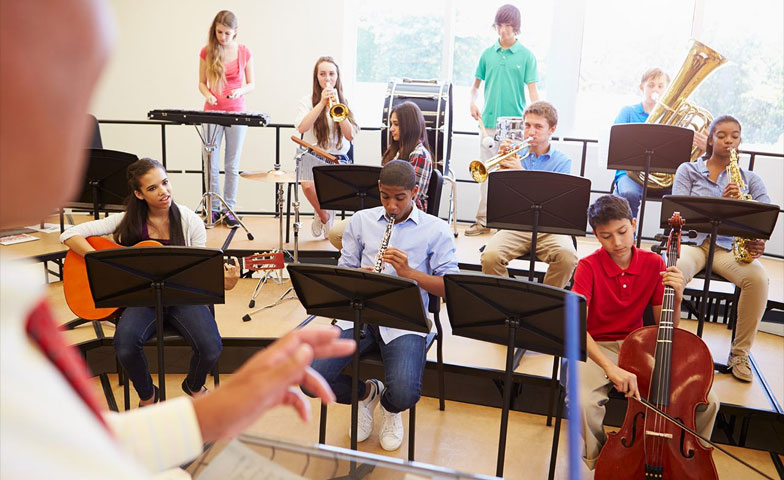Tonight, at my daughter’s orchestra concert, right before the conductor appeared from the wings, a young man accidentally bumped his music stand. His binder tumbled down, his music spilling onto the floor. His stand partner knelt down, whisked his papers up for him, arranged it on the stand, all as the conductor walked out. There was a shared giggle between them, a sort of conspiratorial “well, that was awkward” moment, and with a flick of the conductor’s wrist, the orchestra began to play.
As a voyeur to this episode, I was obviously pulling for the poor kiddo, but what struck me most was the tremendous grace that this girl afforded this awkward young musician. The fact is, the media often portrays teenagers and tweens as thoughtless, cruel, and unkind, yet I see daily acts of grace such as this. I’m not suggesting that there aren’t bullies and rumors, cyber ridiculousness, and judgmental moments. Trust me, I have an eighth grader, so I know that these also are a reality.
However, many middle level educators count it as a part of our job description to meet these kiddos where they are and teach them to embrace their own humanity and the common experience of what Chris Dolgos, a Rochester, New York, member of my PLN (Twitter speak for Professional Learning Community) calls “awesome awkwardness” in his recent Tweet about middle level milestones. I love what Chris suggests here. Not only must we recognize that our students are trying to find themselves, they are also trying to shed parts of themselves they consider babyish. Chris uses poetry in his class to shape their experience of finding agency and voice.

If you’ve never watched “Being Twelve” that Chris suggests, you have to check it out! I was entranced by these students, and I’m already considering how I can begin my school year with eighth graders and make our own “Being Thirteen” video.

Marisa Aoki, a sixth-eighth grade math teacher, captures our role as middle level educators perfectly. What I love about her Tweet is that she both recognizes the inherent “mess” that is middle school, but also our real opportunity to help students through it. Those moments of vulnerability are so important for us to acknowledge, but there’s more to it than that. For us to harness the power of our influence, we must also allow students to see us as vulnerable. I’m certainly not advocating for tears every time we might feel like it or burdening our students. Yet, I am suggesting that in for our students to grow into the people they have the potential to be, we must allow them access to adults who are thinking, emotional, feeling, and real.
I’m inspired by the grace that middle school students extend to each other regularly. In the midst of that “awesome awkwardness,” we as educators can also find a way to connect with our inner middle schooler and be gentle with ourselves and each other.
Thanks for the great first interactive blog experience. Follow me on Twitter @MsAmberChandler and use #AMLE to share your thoughts on our next “Milestones” topic and I’ll share with you our collective advice on: How can we, as teachers, help middle schoolers navigate the emotional rollercoaster of adolescence?
